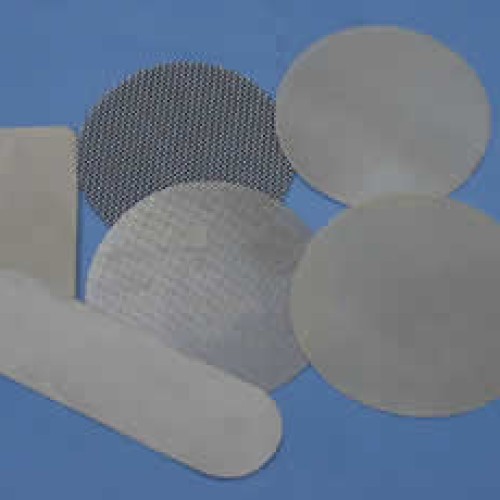| Model NO.: | Fd01 |
|---|---|
| Manufacure Name: | Anping wingle filter element factory |
| Customization: | Available Customized Request |
|---|
Filter discs can be made of woven wire mesh, sintered fiber web or sintered wire cloth sheets while woven wire mesh filter discs are the most popular one. Filter discs made of woven wire mesh are available in a wide range of materials, sizes, shapes, micron retentions and configurations. Materials: Stainless steel, carbon steel, brass, etc. Shapes: Circles, kidney, and rectangular. Filtration Rating: 12 to 1,000 microns. Layers: Single layer or spot welded Multi-layer screen discs. The Disc Filters belong to the side feed group and have been around for many years. They are generally used in heavy duty applications such as the dewatering of iron ore taconite, hematite, coal, aluminum hydrate, copper concentrate, pyrite flotation concentrates and other beneficiation processes. The high time for Disc Filters was in the 60's when the metallurgical industries were booming and filters with 300 m2 and larger were manufactured. The filter consists of several discs, up to 15 in the larger machines, each made up from sectors which are clamped together to form the disc. The sectors are ribbed towards the neck and designed for a high capacity drainage rate. One of the main features is that the required floor space taken up by disc filters is minimal and the cost per m2 of filtration area is the lowest when compared to other vacuum filters. During operation each sector enters submergence and a cake is formed on the face of the discs. It then emerges to the drying zone, the liquid drains to a central barrel and from there through a valve to the vacuum receiver. The valve with its bridge setting controls the timing so that once the sector leaves the drying zone it moves over a separating bridge and a snap or low pressure blow is applied to discharge the cake. Scraper blades on the side of each disc guide the cake to discharge chutes which are positioned between adjacent discs and are wide enough to avoid their clogging by the falling cake. A paddle type agitator located at the bottom of the tank maintains the slurry in suspension which in most of the metallurgical applications contains solids with high specific gravity which are fast settling and abrasive. Application: Filter discs screen are used for the production of polyester fibers and monofilament, plastic extrusion, auto, spray equipment, etc. Benefits: Long service life; Withstand harsh work conditions; Withstand high temperature; Excellence service properties.

| Business Type: | Wingle manufactures the following types of filter elements: Hydraulic, designed to equip pressurized filters, filter drain and other hydraulic systems. Oil intended for lubricating systems, filters, complete machines and mechanisms in various indus... | |
| Comapany: | Anping wingle filter element factory | |
| Year of Establishment: | 2000 | |
| Address: | 78 Jianan street, Anping, Hebei, China. | |
| City: | Anping | |
| Zip/Postal: | 053600 | |
| State: | Hebei | |
| Country: | China |
Wingle manufactures the following types of filter elements:
